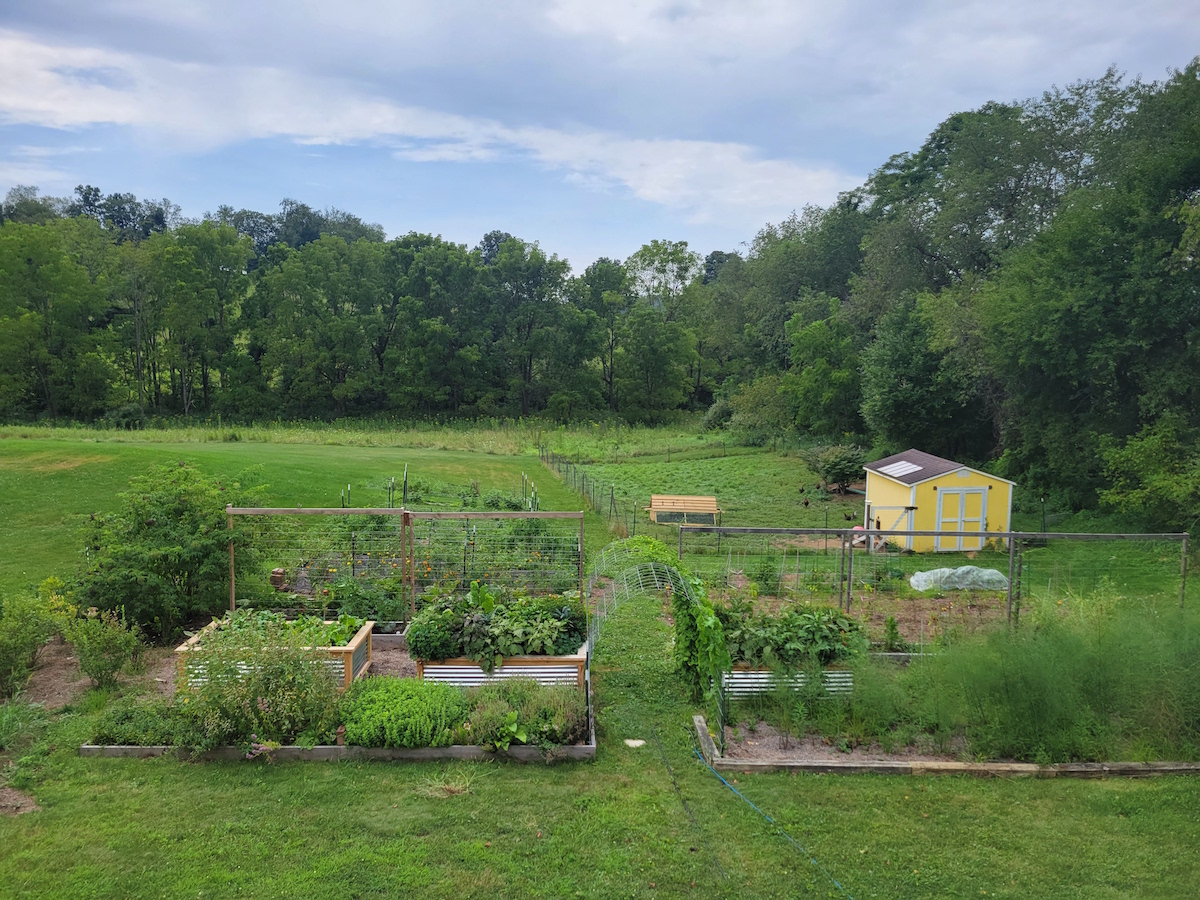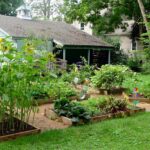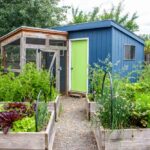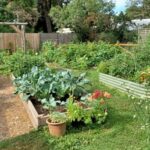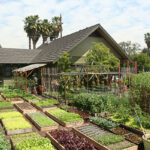Embarking on a journey to create a sustainable lifestyle on a 15 acre homestead can be both exciting and rewarding. A key element to consider in this adventure is the incorporation of herb spirals. These thoughtful and efficient designs not only enhance the beauty of the homestead but also maximize the use of space and resources.

Understanding Herb Spirals
Herb spirals are a popular feature in permaculture gardening, known for their spiral shape that allows for a diverse range of growing conditions in a compact space. This design mimics natural ecosystems, creating microclimates that cater to different herbs’ needs.
Benefits of Herb Spirals
The spiral design optimizes the use of sunlight, water, and soil. It provides a variety of habitats, from sunny and dry at the top to moist and shaded at the bottom. This allows for the cultivation of a wide range of herbs in a small area, making it ideal for a 15 acre homestead.
Designing Your Herb Spiral
When designing an herb spiral, consider the available space and the herbs you wish to grow. The key is to position the spiral in a location that receives ample sunlight and is easily accessible for maintenance and harvesting.
Integrating Herb Spirals into a 15 Acre Homestead
Incorporating herb spirals into your homestead is not just about aesthetics; its about creating a self-sustaining ecosystem. These spirals can serve as an educational tool, teaching about plant diversity and resource management.
Companion Planting in Herb Spirals
Companion planting is a technique that enhances the growth of plants by placing complementary species next to each other. In an herb spiral, this can lead to healthier plants and higher yields.
Water Management
Water management is a crucial element of any homestead. The design of an herb spiral naturally supports effective water use by directing rainfall and irrigation to where its needed most. Learn more about rainwater harvesting techniques on your homestead.
Building Your Herb Spiral
Building an herb spiral is a straightforward process. It involves creating a mound of soil in a spiral shape, using materials like rocks or bricks to support the structure. This not only saves space but also makes gardening more accessible.
Choosing the Right Materials
When building an herb spiral, the choice of materials can influence its durability and functionality. Natural stones are a popular choice due to their aesthetic appeal and ability to retain heat.
Steps to Building an Herb Spiral
1. Choose a location that receives consistent sunlight. 2. Mark out the spiral shape using a rope or hose. 3. Build the base using rocks, bricks, or other materials. 4. Fill the spiral with soil, ensuring it slopes downwards. 5. Plant your herbs, considering their sunlight and water needs.
Maintaining Your Herb Spiral
Maintaining an herb spiral involves regular watering, weeding, and monitoring the health of your plants. With proper care, your spiral can become a thriving part of your 15 acre homestead ecosystem.
Seasonal Considerations
Seasonal changes can affect the growth of your herbs. During wetter months, ensure proper drainage to prevent waterlogging, and in dryer months, consider mulching to retain moisture.
Pest Management
Effective pest management is essential for a healthy herb spiral. Encouraging beneficial insects and using natural pest deterrents can help maintain balance.
Herb Spirals and Sustainability
Herb spirals are a testament to sustainable gardening practices. They embody the principles of permaculture by maximizing productivity while minimizing waste and resource use. Discover more tools for rural living.
Enhancing Biodiversity
Biodiversity is crucial to a thriving homestead. Herb spirals attract a variety of pollinators and beneficial insects, enhancing the ecological balance of your garden.
Reducing Waste
By growing your own herbs, you reduce the need for store-bought produce, cutting down on packaging waste. Learn more about reducing waste on your homestead.
Community and Education
An herb spiral can serve as a community focal point, bringing together individuals interested in sustainable living. It also offers educational opportunities, teaching others about the benefits of self-sufficiency.
Workshops and Classes
Hosting workshops on building and maintaining herb spirals can inspire others in your community to adopt sustainable practices. This not only spreads knowledge but also strengthens community ties.
Sharing Resources
Sharing the resources and knowledge gained from your herb spiral with others can foster a supportive network of like-minded individuals.
The Future of Herb Spirals on Homesteads
The integration of herb spirals into homesteads represents a step towards a more sustainable future. As more people embrace this practice, the potential for positive environmental impact grows.
Innovations in Design
As the popularity of herb spirals increases, so too does the innovation in their design. New materials and techniques continue to emerge, enhancing their efficiency and aesthetic appeal.
Expanding Applications
The principles of herb spirals can be applied beyond herbs, to vegetables and flowers, further broadening their utility on a 15 acre homestead.
Conclusion
Creating a sustainable lifestyle through the use of herb spirals on a 15 acre homestead offers numerous benefits, from enhancing biodiversity to reducing waste. By embracing this practice, homesteaders can create a more self-sufficient and eco-friendly environment.

FAQs
What is the best location for an herb spiral?
The best location for an herb spiral is a spot that receives consistent sunlight and is easily accessible for watering and harvesting.
How do herb spirals support sustainability?
Herb spirals support sustainability by maximizing the use of space and resources, reducing waste, and enhancing biodiversity through companion planting and efficient water management.
Can I build an herb spiral on any type of soil?
Yes, an herb spiral can be constructed on most soil types. However, it’s important to ensure good drainage and amend the soil with organic matter to improve fertility.

